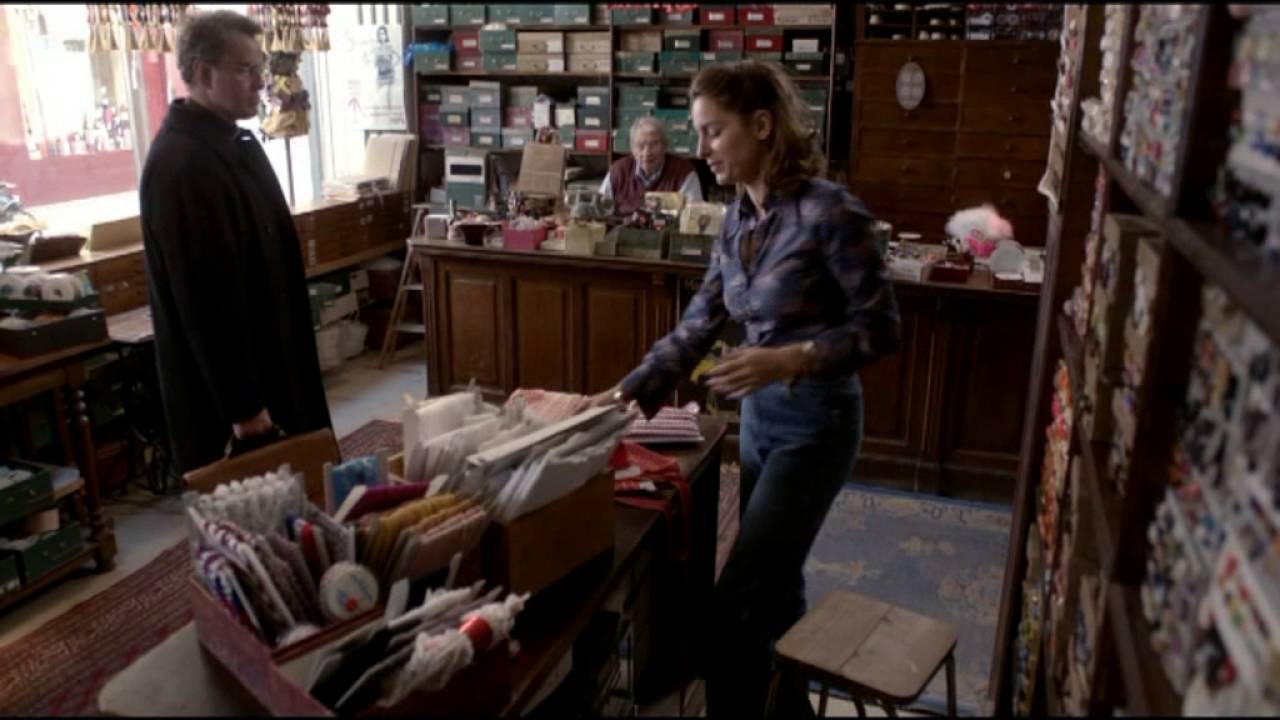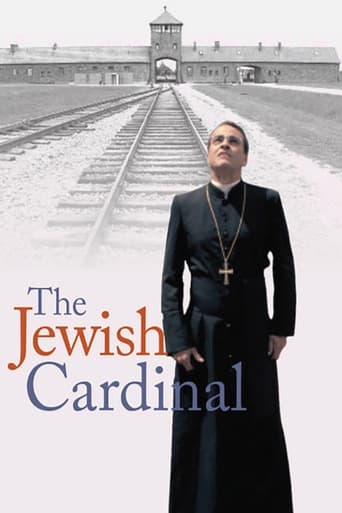MonsterPerfect
Good idea lost in the noise
ThedevilChoose
When a movie has you begging for it to end not even half way through it's pure crap. We've all seen this movie and this characters millions of times, nothing new in it. Don't waste your time.
KnotStronger
This is a must-see and one of the best documentaries - and films - of this year.
Billy Ollie
Through painfully honest and emotional moments, the movie becomes irresistibly relatable
young_scholar
Cardinal Lustinger's confession of faith is a compelling story. Yet, I do not find Catholics speaking much of him. I suspect there is an important clue in this movie why Jean - Paul gave Lustinger the Red Hat. In their first meeting Jean - Paul told Lustinger "there are alot of perfumed Italian priests who'd like to teach me how to be pope." Jean - Paul also spoke of his childhood Jewish playmate, Jerzey. I suspect Jean - Paul, the master of languages, needed someone nearby with whom he could converse privately in a tongue incomprehensible to snooping ears. In addition to negotiating the departure of the Carmelite nuns from Auschwitz, Cardinal Lustinger must be credited for being the very first in the Christian world to detect the fallacies in a popular movie about the passion.
Alex Deleon
Viewed at the Third Jewish Film Festival of Budapest, November 20-23, 2014."Le Métis de Dieu" or "The Jewish Cardinal" is a most poignant docudrama based on the actual biography of Jean-Marie Lustiger, the Archbishop of Orléans from 1981 to 2005. NOTE: The French word "métis" means Half-breed" so a direct translation of the French title would be "God's Half-breed" -- not inappropriate! The Jewish catch of this film -- and what a catch it is -- is that Lustiger was actually a Polish born Jew who was made to convert to Catholicism early in life and then rose through the ranks of the French Catholic hierarchy in an unstoppable arc. Always aware of his Jewish background he suffers all kinds of conflicts, internal and external, but eventually becomes buddies with Polish Pope John Paul II -- so friendly in fact that he calls the Pope by his secular first name, Karol, (originally Karol Wojtyla) at the dinner table. The portrayal of Pope Jean- Paul II by actor Aurélien Recoing is so off-the-wall that this aspect of the film alone would be well worth the price of admission to any self-respecting Polak. It is known that Jean Paul was athletic, but here we see him plunging into his private swimming pool, driving a car, and generally cavorting about like a rather ribald ordinary citizen. Obviously a point director Ilan Duran Cohen (Obviously Jewish) wanted to make in passing. The climax is reached when at The Pope's behest Lustiger is called upon to act as an intermediary negotiator at the gates of Auschwitz between Christian proponents of a Carmelite Convent Which has popped up next to the former Concentration Camp, and vehemently protesting Jews who consider it an outrage to erect a Christian monument on the very ground where so many Jews were murdered -- (by Christian! -- even if not in the name of religion.). This is a gripping drama straight through with complex psychological repercussions at every turn. Originally made for French TV but reads far more like an in situ cinema film. Laurent Lucas is Lustiger in a role to remember. Great picture, and not only for the obviously Jewish content. BRAVO, Ilan D. Cohen, Regisseur!
MartinHafer
I know very little about the real life Cardinal Jean-Marie Lustiger. I am not Catholic nor am I French--so it isn't surprising I don't know much about the man. So, in light of this, I cannot say that the film "Le Métis de Dieu" is accurate or not in its portrayal of the career and personality of the Cardinal. However, I assume it was pretty accurate because the film neither portrayed him as a saint or as a jerk. It gave many examples where he was a strong and admirable man and a few where he was pushy and less than perfect...hence their mentioning his unflattering nickname 'the Bulldozer'. For me, the best bio-pics are ones that neither strive to destroy nor canonize the subject of the film--and this movie seems to do this.When the film begins, Jean-Marie is about to become a Bishop in 1979. This move was made by the new Pope, John Paul II, and it seemed to take Lustiger by surprise, as this Jewish-born priest seemed content to remain at his post in a local church. However, he very quickly rose through the ranks of the church--becoming a Cardinal by the mid-1980s (a VERY fast rise to this position). The remainder of the film is about this period and immediately after. In particular, the focus is on how Lustiger managed to reconcile his Jewish heritage with his faith-- particularly in light of opposition from many sides, including his own family as well as both Jews and Catholics! This all comes to a head when the world's Jews are outraged when a Carmelite nunnery is started on the grounds of Auschwitz--and the Cardinal is called upon to help mediate. This isn't easy, however, as his own mother was murdered there and many of the Poles aren't particularly concerned about offending the Jews. And, in an odd twist, the Pope, for once, seems less than cordial towards Lustiger and his appeals to get these nuns off the property. See the film and see how all this works out.This is a film that starts relatively slowly and works to an exciting and very well-acted finale. Overall, this is a fascinating film for anyone--Jewish, Christian or whatever.
jmbwithcats
I just came back from seeing this today at the Jewish Film Festival and it was absolutely wonderful, I highly recommend it. A movie that takes on the identity of Judaism and Catholicism, the separation, and hopefully reconciliation of our humanity... when faced with such difficult issues as a convent on Auschwitz, and how one can maintain one's Jewish identity, while believing in a path of Jesus, without renouncing one or the other, though so many from both schools believe you should take a side so to speak. I feel very similar in my life, born a Jew, having had my deepest spiritual experiences in life with God and Jesus, but also of Buddhism... this is how I reconcile the dichotomy... A Jewish Seed, grows in the love of God, the love of Jesus, and the wisdom of Buddhism. This movie was challenging but loving, beautiful, and intelligent. I guess people really did smoke that much in the '80s, eh?

